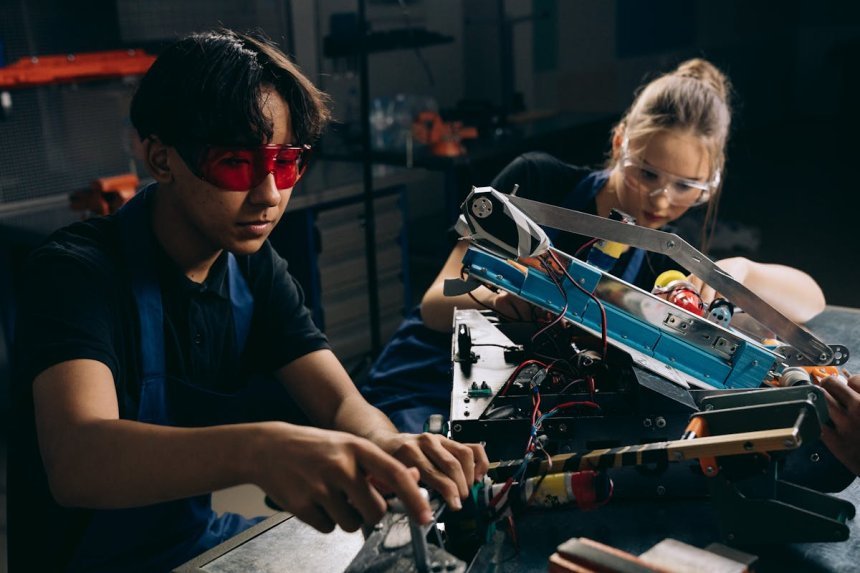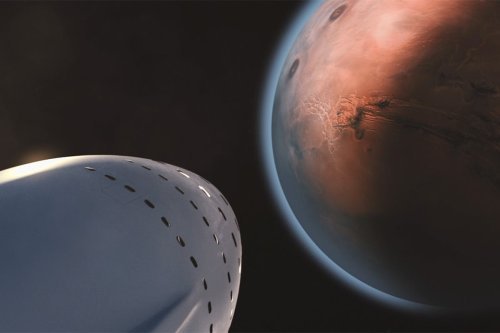By 2050, humans and machines will merge, but not in the way you may expect.
This article gets down to the deeply intriguing question: Will we be merging with machines by 2050? But there's a catch; we are halfway in. The full merger may not look like the science fiction you read growing up. Now, let us discuss the uncomfortable truth no one wants to articulate

In 2050, you probably won't awaken as an android. Maybe part of you is already one, though.
That voice from your pocket—your phone's helper. The wearable that tracks your heartbeat. The AI recommending whom to connect with on LinkedIn for your next career move. These things are not just tools anymore; they are extensions of you.
This article gets down to the deeply intriguing question: Will we be merging with machines by 2050? But there's a catch; we are halfway in. The full merger may not look like the science fiction you read growing up. Now, let us discuss the uncomfortable truth no one wants to articulate.
The Sci-Fi Fantasy vs. the Quiet Reality

Feeding ourselves on Hollywood imaginations svelte metal bodies, red trumping eyes, chip-implanted brains. Robocop, Ghost in the Shell, Transcendence. Pretty simple, though sexy; it's really misleading.
The Real Merger Has Already Begun
Let’s be real—most of us are already cyborgs in some soft, invisible way. No, not with wires poking out of our skulls, but through the tech we carry and wear 24/7.
- Your smartwatch knows your stress levels before you do.
- Neural implants are restoring sight and movement in paralyzed patients.
- AI is finishing your sentences (sometimes too accurately).
What Does It Actually Mean to “Merge with Machines”?
You don't have to become one enormous USB port in order to integrate with machines. It implies that the lines separating digital and biological intelligence become less distinct.
Three Main Paths to the Merge
1. Brain-Computer Interfaces (BCIs)
Elon Musk’s Neuralink is the poster child here—but it's not alone. BCIs are rapidly becoming real.
- What they do: Connect your brain directly to machines.
- Use case today: Helping ALS patients type using just their thoughts.
- Future promise: Uploading memories? Instant language learning? Maybe.
That said… most of these are still experimental. And let's not kid ourselves—surgery on your brain is still brain surgery. Ain’t nobody lining up in droves just yet.
2. Bio-enhancements
We’re not just fixing broken parts. We’re upgrading.
- Bionic eyes that zoom.
- Artificial limbs stronger than flesh.
- Genetic tweaks that make us smarter, faster, more resilient.
By 2050? You might be choosing enhancements like you choose a new phone model today.
3. Ambient Tech & AI Integration
Here’s the sleeper hit: you won’t notice the merge—because it’ll feel natural.
- Your fridge will know your diet.
- Your AI assistant will schedule your therapy, filter your news, negotiate your bills.
- Your digital twin might even apply to jobs for you.
You won’t plug in. You’ll be plugged in. All the time.
The Timeline Nobody’s Talking About
Here’s a kicker: the full merger by 2050? Probably not happening in the flashy, global way people think. Let’s break it down.
2025–2035: The Soft Merge
This decade is all about quiet, creeping integration. AI will be in everything—cars, glasses, even shoes. Smart implants will go mainstream, starting with health tech.
- Pacemakers with Wi-Fi? Already here.
- Cochlear implants that stream music? Coming soon.
- Mood-altering wearables? Not even science fiction anymore.
By 2035, most middle-class people in developed nations will be part machine—and won’t even notice.
2035–2050: The Hard Merge (But Only for the Rich?)
Now here’s where it gets messy. High-tech enhancements—neural chips, synthetic organs, memory augmentation—will exist. But they won’t be cheap.
This won’t be a tech revolution. It’ll be a tech divide.
- The rich get upgrades.
- The rest? Left behind with their “old-fashioned” human limits.
What Could Go Horribly Wrong?
It's not all sunshine and roses. Let's dampen the enthusiasm a bit.
Identity Crisis
If a chip controls your memory… who are you?
Hackable Humans
Imagine ransomware—but instead of locking your laptop, it shuts down your prosthetic leg or implants false memories.
Yikes.
Inequality on Steroids
If only the elite can afford superhuman upgrades, we’ll split into two classes: the enhanced and the obsolete. That’s not sci-fi. That’s social Darwinism 2.0.
Here’s the Twist: The Merge Might Be Psychological, Not Physical
Let’s pause. What if we’ve already merged—in our minds?
Most people trust Google more than their memory. They ask ChatGPT instead of reflecting. They post experiences before feeling them.
Therefore, it's possible that the "merge" has nothing to do with technology. It’s about tech in your mind.
And that? That’s already here.
The Bottom Line?
By 2050, yes—humans will have merged with machines. But not all of us. And not in the way you think. Some will have implants. Others will have habits. But all of us will be shaped by machines.
Share
What's Your Reaction?
 Like
0
Like
0
 Dislike
0
Dislike
0
 Love
0
Love
0
 Funny
0
Funny
0
 Angry
0
Angry
0
 Sad
0
Sad
0
 Wow
0
Wow
0










